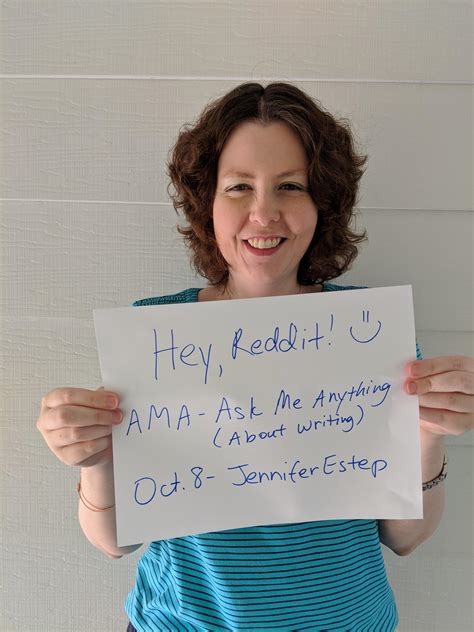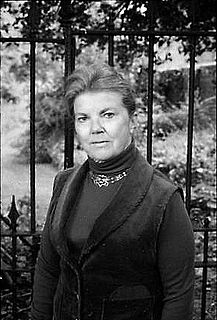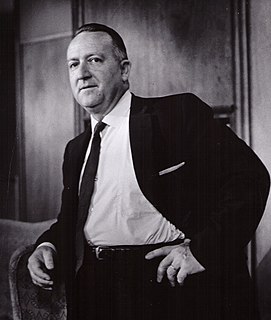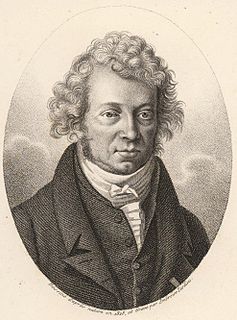A Quote by Jennifer Estep
The two men stared at each other. Assumptions were made, judgments rendered, dicks measured.
Related Quotes
The superpowers often behave like two heavily armed blind men feeling their way around a room, each believing himself in mortal peril from the other, whom he assumes to have perfect vision. Each side should know that frequently uncertainty, compromise, and incoherence are the essence of policymaking. Yet each tends to ascribe to the other a consistency, foresight, and coherence that its own experience belies. Of course, over time, even two armed blind men can do enormous damage to each other, not to speak of the room.
And when at some future date the high court of history sits in judgment on each of us, recording whether in our brief span of service we fulfilled our responsibilities to the state, our success or failure, in whatever office we hold, will be measured by the answers to four questions: First, were we truly men of courage... Second, were we truly men of judgment... Third, were we truly men of integrity... Finally, were we truly men of dedication?-
How joyful to be together, alone as when we first were joined in our little house by the river long ago, except that now we know each other, as we did not then; and now instead of two stories fumbling to meet, we belong to one story that the two, joining, made. And now we touch each other with the tenderness of mortals, who know themselves
You may think it odd that there were three men to look after one tiny station, but the people who ran the railway knew that if you left two men together in a lonely place they would quarrel, but if you left three men, two of them could always grumble to each other about the third, and then they would be quite happy.
The response of the men who were introduced into polygamy between 1841 and 1846 was anything but enthusiastic. The same was true of the women who were offered the chance of becoming plural wives. Apart from the fact that the new system collided with moral assumptions they had grown up with, there were practical difficulties that made polygamy less attractive. For the men to support additional wives was seldom easy.
Once, at the dreaming dawn of history -- before the world was categorized and regulated by mortal minds, before solid boundaries formed between the mortal world and any other -- fairies roamed freely among men, and the two races knew each other well. Yet the knowing was never straightforward, and the adventures that mortals and fairies had together were fraught with uncertainty, for fairies and humans were alien to each other.
Ordinarily logic is divided into the examination of ideas, judgments, arguments, and methods. The two latter are generally reduced to judgments, that is, arguments are reduced to apodictic judgments that such and such conclusions follow from such and such premises, and method is reduced to judgments that prescribe the procedure that should be followed in the search for truth.
the relationship between the two men was something of a miracle in itself. It was a cordiality based, apparently, on complete non-comprehension cemented by a deep mutual respect for the utterly unknown. No two men saw less eye to eye and the result was unexpected harmony, as if a dog and a fish had mysteriously become friends and were proud each of the other's remarkable dissimilarity to himself.


































